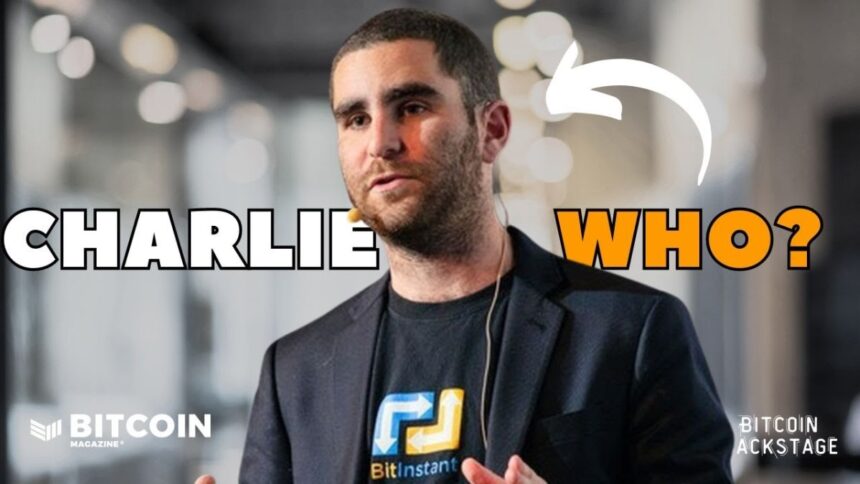
Once a rising star in the bitcoin world, Charlie Shrem became the first high-profile person to be jailed for his involvement with cryptocurrency. As the founder of BitInstant, one of the earliest and most influential bitcoin exchanges, Shrem played a key role in the early adoption of bitcoin. But his 2014 arrest on money laundering charges related to Silk Road transactions marked a turning point.
The Rise of BitInstant
Charlie Shrem discovered Bitcoin during his senior year of college and quickly saw its potential as a revolutionary currency promising personal freedom, autonomy, and privacy. In 2011, he co-founded BitInstant with Gareth Nelson to create a platform that made it easy for people to buy and sell Bitcoin at a time when it was extremely difficult to do so. Within a year, BitInstant facilitated nearly one-third of Bitcoin transactions and partnered with major retailers such as Walmart and 7-Eleven to allow users to deposit cash into their accounts at over 700,000 locations worldwide.
Collapse: Silk Road and legal troubles
BitInstant’s rapid growth and success was halted when a user of the platform, Robert Faiella, was found to have been buying large amounts of Bitcoin with cash and selling them on Silk Road, an online black market notorious for drug trafficking. Although Shrem was not directly involved in any illegal activity, he was arrested at JFK airport for failing to report these suspicious transactions. In January 2014, Shrem was charged with aiding and abetting the operation of an unlicensed money transmitting business and sentenced to one year in prison.
Lessons learned
Shrem’s downfall highlights the reality that despite Bitcoin’s ethos of decentralization and financial freedom, the cryptocurrency industry cannot escape the existing regulatory framework. While the principles behind Bitcoin advocate autonomy and privacy, companies operating in the space must recognize and navigate the strict regulations that govern financial activity. The story is a cautionary tale about the potential dangers of government interference and regulatory overreach. It highlights the need for the Bitcoin community to defend the industry from policymakers who seek to impose restrictive measures. The key lesson is to remain vigilant and proactive in defending Bitcoin’s fundamental ideals against regulatory pressures that could stifle innovation and freedom.
Charlie Shrem’s journey from pioneering Bitcoin entrepreneur to convicted felon is a stark reminder of the challenges and risks inherent in the cryptocurrency world. His story highlights the importance of regulatory compliance and the ongoing need to navigate a complex legal environment. As the Bitcoin industry continues to evolve, the lessons learned from Shrem’s experience remain critical, underscoring the need for vigilance, advocacy, and a commitment to upholding the principles of decentralization and economic freedom.
Resilience and Vision: Insights from Obi Nwosu
In a “Bitcoin Backstage” interview, Fedmint co-founder Obi Nwosu shared his journey and vision for Bitcoin. Combining his tech background with his passion for meritocracy, Nwosu discovered Bitcoin in 2011. “It was like a match made in heaven,” Nwosu recalled, emphasizing how Bitcoin’s principles align with his own values.
His life, marked by resilience, mirrors Bitcoin’s antifragility: “My life is essentially a story of antifragility. I’ve been knocked down so many times, but I’ve learned to get back up,” Nwosu said, drawing parallels between his personal journey and Bitcoin’s resilience: “Bitcoin is antifragile money. Every time it gets attacked, it gets stronger, better, faster.”
Reflecting on FTX’s collapse, Nwosu acknowledged the short-term downsides but emphasized the long-term benefits: “This reminds people why we’re saying this, especially in the Bitcoin space. We’ve always said people should strive for self-custody.” The “no keys, no coins” mantra remains central, emphasizing the importance of security and personal responsibility.
Looking ahead, Nwosu hopes to drive innovation within the Bitcoin ecosystem and advocate for application development on platforms like the Lightning Network and Fedimint. His vision is clear: by sticking to core principles and building resilience, Bitcoin can continue to grow and transform the financial industry.
Nwosu’s story and insights highlight the resilience, self-care, and continuous innovation that are essential to navigating the complexities of the modern financial world, and offer a hopeful vision for the future of Bitcoin.



